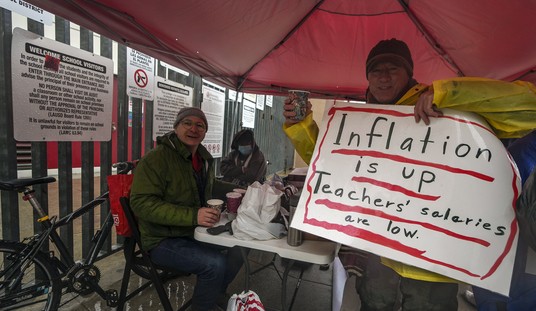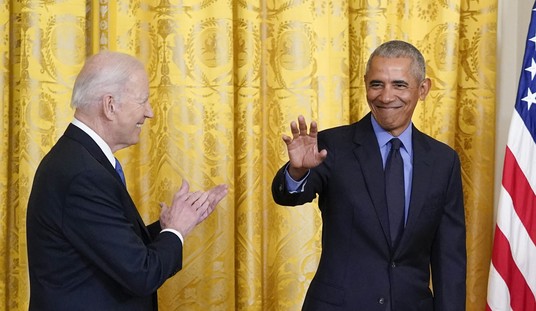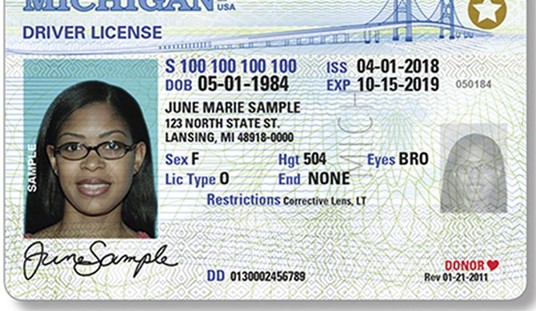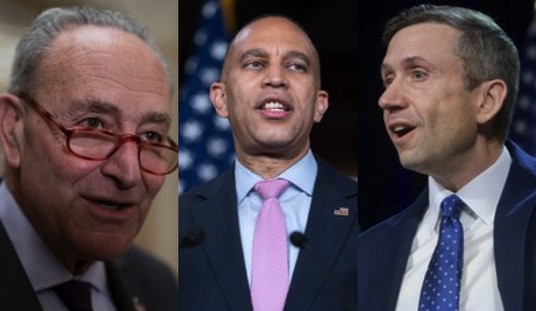While most conservatives are disappointed today that the Supreme Court did not issue decisions on SSM or King v. Burwell, today’s Supreme Court opinions were nonetheless monumental and, for proponents of liberty, were almost unqualified wins. The Court issued four opinions, three of which will all serve as meaningful checks against abuses of government authority.
The first of these, Kingsley v. Hendrickson, dealt with the standard an inmate must meet to prevail on a section 1983 action for excessive force while in pretrial detention. For the non-lawyers, 42 U.S.C. section 1983 (paraphrased) allows citizens to bring lawsuits against agents of the government when those agents deprive them of their constitutional rights (including the right to be free of the excessive use of force). The case concerned a man named Kingsley who was awaiting trial in county jail, and who was forcibly removed from his cell with some considerable force (including the use of tasers). Mr. Kingsley brought suit, alleging that his Constitutional rights had been violated.
Under ordinary circumstances, a citizen who alleges a violation of his Constitutional right to be free from excessive force when encountering, say, the police must merely prove that the officers’ use of force was “objectively unreasonable.” However, because Mr. Kinglsey was in pretrial detention, the trial judge instructed the jury at the conclusion of his trial that, in order to find for the plaintiff, they had to believe that the officers acted with “reckless disregard for [Kingsley]’s safety” or with “reckless disregard of [his] rights[,]” a much higher standard of proof. The Supreme Court reasoned that there was no legal reason for this heightened standard of proof just because Mr. Kinglsey was in pretrial detention.
Although this distinction may seem inconsequential and esoteric, it is nonetheless an important victory for liberty and a check on government power. A person who is in pretrial custody is still entitled to the same presumption of innocence that you and I are, and is still entitled to the same constitutional protections against excessive use of force. The government often tends to treat people who are in pretrial detention as being presumptively guilty nonetheless, and this decision will hopefully help reinforce the point that it isn’t so. This decision may not seem like anything that matters to you now, but if you ever find yourself awaiting trial on bogus or politically motivated charges (a reality that occurs more often than we would care to admit), it will be a major protection.
The second, City of Los Angeles v. Patel, is even more important, from a liberty perspective. Patel dealt with a City of Los Angeles ordinance that required hotel owners to keep a list of guests for 90 days and to present that list to the police for inspection any time they asked for it. At no point in the process did the ordinance in question permit hotel owners to seek independent judicial review to determine if the demands of the police were reasonable or constitutional but instead levied an automatic fine for failure to comply. Mr. Patel sought to facially challenge this ordinance on Fourth Amendment grounds – something that was previously difficult if not impossible to do (many ordinances and statutes had been subject to facial challenge under, say, the First Amendment, but not the Fourth).
The Court held that a) facial challenges under the Fourth Amendment were permissible (and not disfavored) and b) that an ordinance that did not permit independent judicial review of a search of this type was facially unconstitutional under the Fourth Amendment. This decision reaffirmed a basic bulwark of our constitutional protections from police overreach – that when police demand the right to conduct a search and seizure of your property, you are always entitled to a before-the-fact judicial review of their actions, in the absence of special exigent circumstances which it is their burden to prove at court.
The third, Horne v. Department of Agriculture, concerns one of the most shocking and longstanding abuses of the free market that the government has ever engaged in – the government’s “marketing orders” program that it uses to artificially set the market for many agricultural products. Under this abominable program, if you wish to sell many agricultural products in the United States (in this case, raisins), the government can (and does) require you to set aside a portion of your crop and just give it to the government for them to sell it, donate it, or destroy it as they see fit. For raisin growers, the government regularly confiscates nearly half the products they grow, for absolutely nothing, just for the right to sell raisins in the United States. Keeping in mind that the Department of Agriculture, with little or no Congressional oversight, determines how much of your crop they get to steal, how they dispose of your crops, and whether you get anything back at all.
The Hornes were raisin growers who refused to participate in this program, reasoning that, at the very least, if the government wanted to take their raisins, this would constitute a “taking” under the Constitution, which under Fifth Amendment precedent would at least require the government to pay them “just compensation” for their personal property. The Federal Government argued that this constitutional provision only applied to real property (i.e., land) and not personal property (e.g., raisins). Thankfully, the SCOTUS ruled for the raisin farmers, reasoning that “the Government has a categorical duty to pay just compensation when it takes your car, just as when it takes your home.”
This decision may well spell the end of the “marketing orders” program which has led to untold abuse and corruption, and a set of dizzying and byzantine agriculture regulations that have long stifled meaningful competition and almost completely destroyed free market forces in the agricultural sector. And that, frankly, is all to the good in this country.
We didn’t get the opinions we were looking for today at SCOTUS, but we got the opinions this country needs.














Join the conversation as a VIP Member